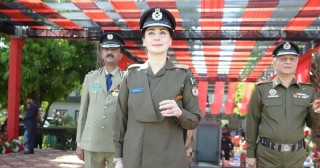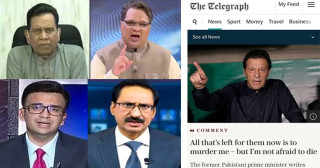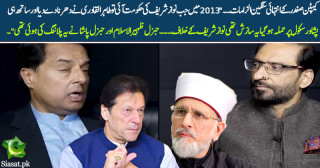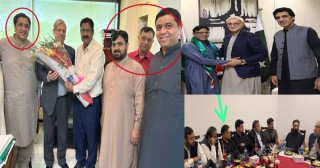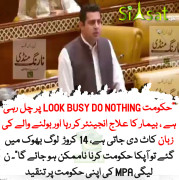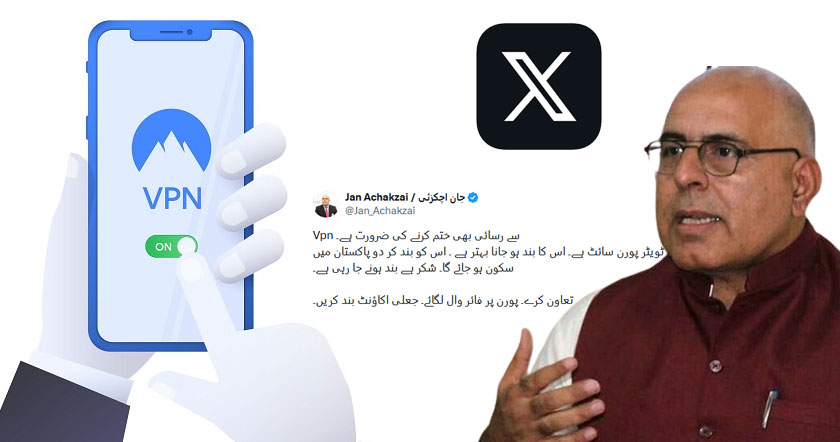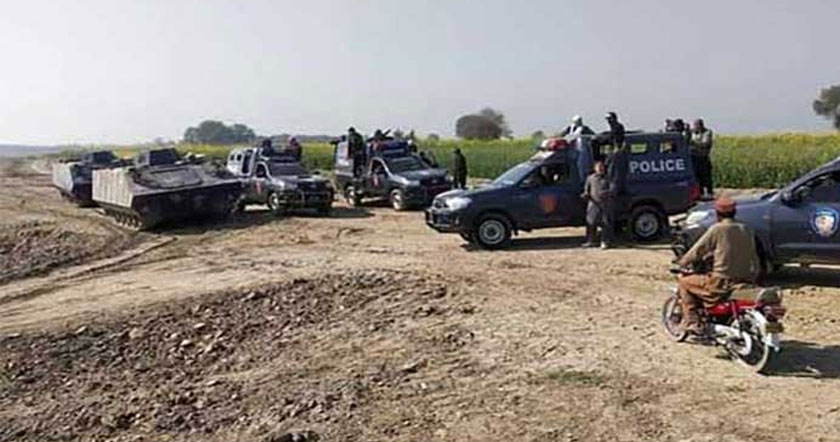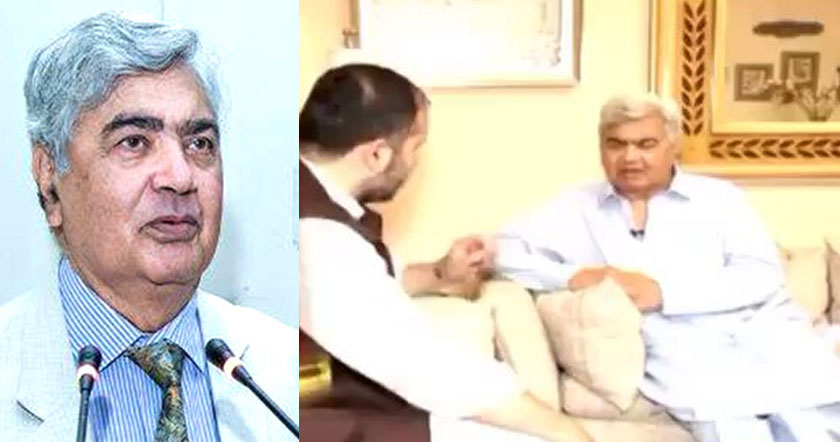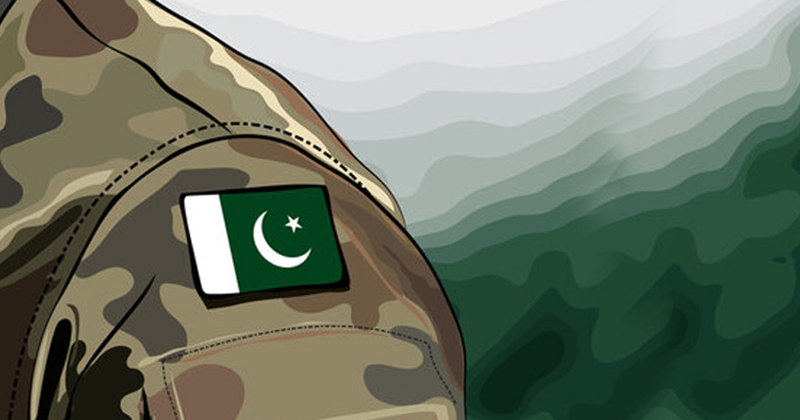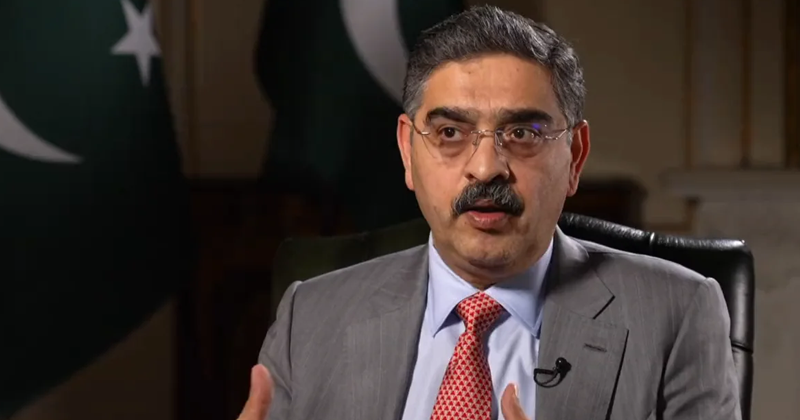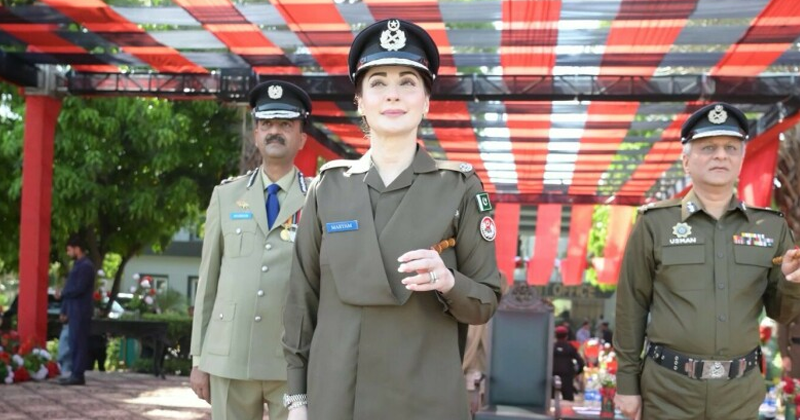NOVEMBER 11, 2008...7:08 AM
The Great Game Continues
By Dr. Sachithanandam Sathananthan,
Dr Sachithanandam Sathananthan earned his Ph.D. from the University of Cambridge. He serves as a Visiting Research
Scholar at the Jawaharlal Nehru University School of International Studies.
Sep 12, 2008
Counterpoint
The Great Game Continues
There is great euphoria among Pakistani liberals over the presumed return to
democracy. They are yet to discover Late Neo-colonialism. The manoeuvres
against Musharraf bear uncanny resemblances to organised peoples power
the CIA unleashed during colour revolutions and upheavals against Hugo
Chavez.
The widely expected victory for Pakistan Peoples Party (PPP) leader Asif Ali
Zardari in the presidential election brought to a high point the tortuous process
of regime change in Pakistan. Anyone who has followed the colour
revolutions that installed pro-American rulers in Georgia (Rose Revolution,
2003), Ukraine (Orange Revolution, 2004) and Kyrgyzstan (Tulip Revolution,
2005) could surely not have missed the tell tale signs.
The earliest foreboding surfaced in the backroom manoeuvres by United
States (US) and British intelligence services to engineer panic about the
security of Pakistans nuclear assets. It was a repeat of the duplicitous
hysteria they generated over non-existent weapons of mass destruction that
Iraq allegedly possessed. A carefully worded article, co-authored by former
State Department officials Richard L. Armitage and Kara L. Bue, signalled the
shift in US policy. After formally acknowledging then President Pervez
Musharrafs many achievements, the authors continued: much remains to be
accomplished, particularly in terms of democratization. Pakistan
musteliminate the home-grown jihadistsAndit must prove itself a
reliable partner on technology transfer and nuclear non-proliferation. And the
denouement: We believe General Musharrafdeserves our attention and
support, no matter how frustrated we become at the pace of political change
and the failure to eliminate Taliban fighters on the Afghan border. Translation:
Musharraf has to go.
Almost simultaneously a 2006 country survey in The Economist, titled Too
much for one man to do, began on a jingoistic overkill: Think about Pakistan,
and you might get terrified. Few countries have so much potential to cause
trouble, regionally and worldwide. The following year a Carnegie Endowment
report faulted western governments that contribute to regional instability by
allowing Pakistan to trade democratisation for its cooperation on terrorism.
Senior US State Department officials repeatedly accused Musharraf of not
doing enough to combat Islamists within Pakistan and prevent their infiltration
across the Durand Line into southern Afghanistan.
Sensing the way wind was blowing, then PPP Chairperson Benazir Bhutto
redoubled efforts to convince Washington and London that, if she were to
become Prime Minister, she would gladly do their bidding. She underscored
her enthusiasm to serve and ensured her party was fully responsive to
Americas Late Neo-colonialism. She summoned senior party members to
Dubai on 9 June 2007 for a briefing by a team from the US Democratic
Partys National Democratic Institute (NDI), ostensibly on the subject of
elections in Pakistan. The ruling Republican Partys International Republican
Institute (IRI) had conducted the previous four briefings in June and
September 2006 and March and April 2007. Benazir leaned towards the
Democratic Party in the last one no doubt as a hedge against the partys
possible victory at the forthcoming US Presidential Election.
Even a cursory knowledge of US Imperialisms standard operating procedure
is sufficient to surmise at least some among the IRI and NDI officers were
covert intelligence operatives; and that their briefings went beyond tutelage
of natives. Rather they have been grooming the PPP as Americas satrap.
Benazirs predilection to collaborate with the West has its roots in the Bhutto
familys micro political culture. Her grandfather, Shah Nawaz Bhutto was a
minor comprador official in the British colonial regime. The British rewarded
his loyal services with the title Khan Bahadur and later appointed him
President of a District Board and still later elevated him to knighthood.
Her father Zulfikar Ali Bhuttos populist programmes did not dilute that legacy,
which left a lasting impression on Benazir; she firmly believed the path to
political power in Pakistan meanders through the Embassy of the United
States, the current neo-colonialist.
She promised to offer the International Atomic Energy Agency access to Dr
Abdul Qadeer Khan to satisfy the international community, an euphemism for
the major powers; and to allow the US-led International Security Assistance
Force in Afghanistan to operate inside north-western Pakistan. By the time
Benazir visited the Senate in September 2007, she had convinced the Bush
Administration of her unswerving loyalty; for she received a standing ovation
from a select gathering of US lawmakers, diplomats, academics and media
representatives. This contrasted sharply with her previous visits to the US
capital when she received little attention. To deepen Washingtons renewed
interest in her, Benazir cautioned that supporting Musharraf was a strategic
miscalculation and pleaded the US should support the forces of democracy,
which, of course, refers to her PPP.
So, President George W Bush enabled Benazirs return from exile by armtwisting
Musharraf to promulgate the National Reconciliation Ordinance
(NRO). The NRO of 5 October granted amnesty to politicians active in
Pakistan between 1988 and 1999 and effectively wiped the slate clean of
corruption charges for Benazir and her husband Asif Zardari. Three weeks
later Secretary of State Condoleezza Rice made it appear the Bush
Administration wished to bring together moderate forces, implying a scenario
in which Musharraf and Benazir would join forces as President and Prime
Minister respectively; and Deputy Secretary of State John Negroponte
corroborated Rice: Our message, he intoned, is that we want to work with
the government and people of Pakistan.
However, Musharraf saw through the US Administrations transparent ploy to
lull him into believing it would not remove him and install Benazir in his place.
So, he swiftly invited Nawaz Sharif, leader of the Pakistan Muslim League-
Nawaz (PML-N), back from exile in Saudi Arabia to counter Benazir. But he
could not consolidate his position, especially because he mishandled the
judiciary, and was compelled to resign on 18 August 2008.
In a nutshell, the reason for Washingtons renewed interest in Benazir is
Musharrafs firm opposition to US Late Neo-colonialism, to its manoeuvres to
occupy, pacify and ravage Pakistan. In the 19th century British colonialism
waged the war on piracy on the high seas ostensibly to bring the light of
Christian civilization. But the British were the most successful pirates, as
Spanish and Portuguese historians would gladly confirm. The war on piracy
was the duplicitous justification trotted out to dominate lucrative maritime
trade routes that were in the hands of Chinese, Arab and Tamil maritime
empires and to invade kingdoms and/or countries essential to control trade
and plunder resources. During most of the 20th century heroic anti-colonial
movements and anti-imperialist wars rolled back much of colonial rule, which
in some instances however morphed into neo-colonialism. Indonesia after
Sukarno, Iran after Mosaddeq and Chile after Allende are well known
examples.
The war on terror and promoting democracy are the 21st century
equivalents of the 19th century British gobbledygook. American Late Neocolonialism purveys them as moral justification and uses as political cover for
intervening and, where necessary, invading resource-rich and strategic
countries to overthrow nationalist leaders, install puppet regimes and savage
the countries wealth. And of course the US is by far the most powerful
terrorist force.
It succeeded in Iraq (for now); but the CIA-organised regime change could not
dislodge Venezuelas Hugo Chavez, who rejected the neo-colonialist 1989
Washington Consensus and supported alternative nationalist economic
models.
Politically challenged Pakistani liberals a motley crowd that includes
members of human rights and civil liberties organisations, journalists,
analysts, lawyers and assorted professionals are utterly incapable of
comprehending the geo-strategic context in which Musharraf manoeuvred to
defend Pakistans interest. So they slandered him an American puppet,
alleging he caved in to US pressure and withdrew support to the Afghan
Taliban regime in the wake of 9/11 although in fact he removed one excuse
for the Bush Administration to bomb Pakistan into stone age, as a senior
State Department official had threatened.
Nevertheless American discomfort with Musharrafs government was palpable
by late 2003, after he dodged committing Pakistani troops to prop up the
Anglo-American invasion of Iraq. When he offered to cooperate under the
auspices of the Organisation of the Islamic Conference (OIC), nave Pakistani
media and analysts lunged for his jugular, condemning him once again for
succumbing to US demands. But in fact he nimbly sidestepped American
demands: he calculated that diverse ideological stances of the 57 Muslim
member-counties would not allow the OIC to jointly initiate such controversial
action and therefore Pakistans participation cannot arise, which proved
correct.
Washington of course was not amused and the Bush Administration grew
increasingly hostile to Musharrafs determination to prioritise Pakistans
interests when steering the ship of the state through the choppy waters of the
unfolding New Great Game, in which the West led by the US is
manoeuvring to contain growing Russian and Chinese influences in Central
and West Asia. His foreign policy decisions over time convinced Washington
that under his leadership, Pakistan would side with enemies of US and Britain
in the New Great Game. First, he refused to isolate Iran; instead he vigorously
pursued energy cooperation to build the Iran-Pakistan-India gas pipeline in
the face of stiff American opposition. Second, Washington was alarmed by
Musharrafs preference for deepening Pakistan-China bilateral relations and
forging nuclear cooperation; and more so when he offered Beijing naval
facilities at the Gwadar port on Balochistans Arabian Sea coast overlooking
the entrance to the Strait of Hormuz, a strategic chokepoint through which
passes approximately 30 per cent of worlds energy supplies.
Perhaps the last straw was his success in gaining Observer Status for
Pakistan in the Shanghai Cooperation Organisation (SCO). Russia and China
are spearheading the SCO, which includes four other countries: Kazakhstan,
Kyrgyzstan, Tajikistan and Uzbekistan; Iran and India are also Observers. The
SCO is widely perceived as a rising eastern counterweight to western security
and economic groupings and Islamabad drifting towards the SCO was simply
unacceptable in Washington.
To rub salt into its wounds, Musharraf refused permission to interrogate Dr.
AQ Khan and firmly rejected Washingtons demands that NATO troops be
allowed into the North West Frontier Province (NWFP) to hunt down Osama
bin Laden and his associates.
By early 2006 it was clear Washington was looking for nothing less than a
pliable leader in Islamabad, a firm political foothold in Pakistan and a
Pakistani foreign policy that complemented US strategic aims in Central Asia.
What perhaps angered Washington the most were actions Musharraf took to
wind down the war on terror within Pakistan.
Immediately after taking power, he outlawed three Islamic extremist groups
and, after 9/11, intensified military operations in the Federally Administered
Tribal Areas (FATA) bordering Afghanistan.
Washington would have gone along with Musharraf had he focussed on
military operations to curb Islamists. Military action alone cannot defeat
guerrillas; but it can kill many of them and in turn induce new recruits well
known points reiterated by William R Polk in Violent Politics (2007) so that
the so-called war on terror would not end any time soon.
That could supplement US Administrations assiduous manufacture of the
Islamic threat through the 1990s to launch an endless war on terror the
New Cold War to rescue Americas permanent war economy. For after the
collapse of the Soviet Union, the US economy (and by extension west
European economies) faced perhaps its biggest crisis: the Communist threat
ceased to be credible; it could not be exploited to terrify the American people
into acquiescing to rising military expenditure that keeps wheels of the
permanent war economy rolling and to expanding the repressive security
apparatuses.
So the Bush Administration deftly replaced the Communist threat with the
Islamic threat, no doubt following Machiavellis famous advice in The Prince,
that a wise ruler invents enemies and then slays them in order to control
his own subjects. The apparently counterproductive bombings, arrests,
torture, kidnappings and disappearances (sanitised as Extraordinary
Rendition) carried out by US forces while the CIA covertly funded, armed and
supported Islamists are intended not to eliminate the Islamic threat but to
contain it within manageable limits and to spawn the next generation of
terrorists.
Sometimes, plans go awry; culling may not contain the resistance, as seen in
Afghanistan from time to time. Nevertheless, the strategy is to feed terrorism
and simultaneously cull terrorists so that the perpetual New Cold War oils
Americas moribund permanent war economy.
Musharraf, however, did not play ball. He complemented military force to
defeat Islamists with political initiatives.
He signed a peace treaty with tribal elders in North Waziristan (within FATA)
to marginalise the Islamists. To combat the Islamists religious ideology, he
promoted enlightened moderation, a veiled reference to secularism and
tolerance. Musharrafs vision of a secular Pakistan has its roots in exposure to
Mustafa Kemal Ataturks legacy when he attended school in Ankara during his
fathers diplomatic posting to Turkey. In fact, after taking power in Pakistan he
often held up Ataturk as his role model. He planned to wean away the people
from the extremists through education is how he described his approach to
this writer. Towards this end, he introduced educational reforms and re-wrote
school history text books; enacted laws protecting womens rights and diluted
Islamic laws against women; and he liberalised the media. To deny Islamists
their traditional rallying cry Kashmir he opened path breaking
negotiations with India to remove that arrow from the Islamists quiver.
When Musharraf skilfully combined military operations against Islamists with a
political front promoting secularism to ideologically disarm them, the US
administration saw red. By secularising Pakistani society over time Musharraf
would de-fang the Islamic threat within Pakistan and extricate the country out
of the contrived orbit of war on terror.
That would greatly diminish Washingtons leverage to intervene in the country
to distance Islamabad from Beijing and exploit energy resources abundantly
found in Balochistan and, in the long run, perhaps derail US administrations
well laid plans to bring Afghanistan to heel and to dominate Central Asia and
its oil-rich Caspian Sea basin.
But Musharraf was in no mood to back down. So the Bush Administration
slipped regime change into gear. Taking advantage of his missteps, the anti-
Musharraf media blitz, NGO and student mobilisations, lawyers agitations,
protests by political parties and civil society organisations seemingly coming
from all directions in fact displayed a fantastic degree of organisation,
coordination and financing clearly beyond the ken of the fratricidal activists
and often ad hoc institutions and never witnessed before in the country. Very
likely they will not be seen again either; indeed later the activists were
singularly incapable of organising any significant agitation when three women
were buried alive for defying their parents choice of husbands. The
manoeuvres against Musharraf bear uncanny resemblances to organised
peoples power the CIA unleashed during colour revolutions and upheavals
against Hugo Chavez.
The Bush Administration began reaping the rewards of unseating Musharraf
within 24 hours of his resignation. Chief of Army Gen Ashfaq Parvez Kayani
travelled to Kabul to meet NATO and Afghan commanders on 19 August.
About 10 days later Chairman of the US Joint Chiefs of Staff Admiral Mike
Mullen informed a Pentagon news conference on 28 August that Kayani and
his lieutenants held a secret meeting with their US counterparts on a US
aircraft carrier, reminiscent of American gun boat diplomacy in Latin America
and unthinkable in Pakistan under Musharrafs watch..
Mullen touchingly chronicled how he learned to trust Kayani and bent over
backwards to emphasise that Kayani is no American puppet, that Kayanis
principles and goals are to do whats best for Pakistan. But a few sections of
the US media, weaned on decades of Pentagon-speak from the debacle in
Vietnam to the illegal invasion of Iraq, saw through the verbal obfuscation.
And when a reporter pointedly queried Mullen whether Kayanis goal for
Pakistan also aligned a hundred per cent with the US goal, the Admiral
waffled: [Kayani] knows his country a whole lot better than we do. And again,
I just think thats where he is, thats where hell stay. Translation:
US administration has got Kayani on tight leash.
And to maintain there is no substantial change from Musharrafs policies,
Kayanis spokesman Maj-Gen Athar Abbas and Mullen alleged the meetings
had been arranged several weeks earlier, when Musharraf was President, to
facetiously imply he had approved the contacts.
The import of coordination between American, NATO, Afghan and Pakistan
militaries will become clearer over the next weeks and months. For now the
suspicion is unavoidable that the US Administration has at long last begun
frog-marching Pakistan into the US-created Afghan quagmire to further
destabilise the country and justify intervention.
Musharraf had resolutely opposed precisely this eventuality. He rejected US
demands that the Pakistani army assist NATO forces in Afghanistan. He
underlined the country will not repeat the catastrophic mistakes of the 1980s
when it got embroiled in Americas war in Afghanistan against the then Soviet
Union, for which the Pakistani people continues to pay a heavy price. Rather,
he insisted his army will fight only Pakistans war within Pakistans borders.
The consequences of the PPP leadership following the US into the Afghan
quagmire will soon be evident. Already, within 16 days of Musharrafs
resignation, US forces carried out the first ground assault in Angoor Adda
area within Pakistans borders which Musharraf had disallowed with the
connivance of the new leadership. Obviously there is more to come since the
Bush Administration has eagerly caricatured the Pakistan-Afghanistan border
as The New Frontier in the New Cold War.
For the moment, there is great euphoria among Pakistani liberals over the
presumed return to democracy. The comments by Ayesha Tanmy Haq are
typical: We have removed a dictator by the citizenry showing that real power
lies with them. The hapless liberals have yet to discover Late Neo-colonialism
and its devious manoeuvres for regime change; they have in fact effectively
legitimised them by opposing Musharraf. They are agonisingly unaware of the
labyrinthine geo-politics and economic imperatives underlying the New Cold
War.
They are blissfully going along with the collaborationist leaders who are
bartering away the countrys future for the proverbial pieces of silver.
The Great Game Continues
By Dr. Sachithanandam Sathananthan,
Dr Sachithanandam Sathananthan earned his Ph.D. from the University of Cambridge. He serves as a Visiting Research
Scholar at the Jawaharlal Nehru University School of International Studies.
Sep 12, 2008
Counterpoint
The Great Game Continues
There is great euphoria among Pakistani liberals over the presumed return to
democracy. They are yet to discover Late Neo-colonialism. The manoeuvres
against Musharraf bear uncanny resemblances to organised peoples power
the CIA unleashed during colour revolutions and upheavals against Hugo
Chavez.
The widely expected victory for Pakistan Peoples Party (PPP) leader Asif Ali
Zardari in the presidential election brought to a high point the tortuous process
of regime change in Pakistan. Anyone who has followed the colour
revolutions that installed pro-American rulers in Georgia (Rose Revolution,
2003), Ukraine (Orange Revolution, 2004) and Kyrgyzstan (Tulip Revolution,
2005) could surely not have missed the tell tale signs.
The earliest foreboding surfaced in the backroom manoeuvres by United
States (US) and British intelligence services to engineer panic about the
security of Pakistans nuclear assets. It was a repeat of the duplicitous
hysteria they generated over non-existent weapons of mass destruction that
Iraq allegedly possessed. A carefully worded article, co-authored by former
State Department officials Richard L. Armitage and Kara L. Bue, signalled the
shift in US policy. After formally acknowledging then President Pervez
Musharrafs many achievements, the authors continued: much remains to be
accomplished, particularly in terms of democratization. Pakistan
musteliminate the home-grown jihadistsAndit must prove itself a
reliable partner on technology transfer and nuclear non-proliferation. And the
denouement: We believe General Musharrafdeserves our attention and
support, no matter how frustrated we become at the pace of political change
and the failure to eliminate Taliban fighters on the Afghan border. Translation:
Musharraf has to go.
Almost simultaneously a 2006 country survey in The Economist, titled Too
much for one man to do, began on a jingoistic overkill: Think about Pakistan,
and you might get terrified. Few countries have so much potential to cause
trouble, regionally and worldwide. The following year a Carnegie Endowment
report faulted western governments that contribute to regional instability by
allowing Pakistan to trade democratisation for its cooperation on terrorism.
Senior US State Department officials repeatedly accused Musharraf of not
doing enough to combat Islamists within Pakistan and prevent their infiltration
across the Durand Line into southern Afghanistan.
Sensing the way wind was blowing, then PPP Chairperson Benazir Bhutto
redoubled efforts to convince Washington and London that, if she were to
become Prime Minister, she would gladly do their bidding. She underscored
her enthusiasm to serve and ensured her party was fully responsive to
Americas Late Neo-colonialism. She summoned senior party members to
Dubai on 9 June 2007 for a briefing by a team from the US Democratic
Partys National Democratic Institute (NDI), ostensibly on the subject of
elections in Pakistan. The ruling Republican Partys International Republican
Institute (IRI) had conducted the previous four briefings in June and
September 2006 and March and April 2007. Benazir leaned towards the
Democratic Party in the last one no doubt as a hedge against the partys
possible victory at the forthcoming US Presidential Election.
Even a cursory knowledge of US Imperialisms standard operating procedure
is sufficient to surmise at least some among the IRI and NDI officers were
covert intelligence operatives; and that their briefings went beyond tutelage
of natives. Rather they have been grooming the PPP as Americas satrap.
Benazirs predilection to collaborate with the West has its roots in the Bhutto
familys micro political culture. Her grandfather, Shah Nawaz Bhutto was a
minor comprador official in the British colonial regime. The British rewarded
his loyal services with the title Khan Bahadur and later appointed him
President of a District Board and still later elevated him to knighthood.
Her father Zulfikar Ali Bhuttos populist programmes did not dilute that legacy,
which left a lasting impression on Benazir; she firmly believed the path to
political power in Pakistan meanders through the Embassy of the United
States, the current neo-colonialist.
She promised to offer the International Atomic Energy Agency access to Dr
Abdul Qadeer Khan to satisfy the international community, an euphemism for
the major powers; and to allow the US-led International Security Assistance
Force in Afghanistan to operate inside north-western Pakistan. By the time
Benazir visited the Senate in September 2007, she had convinced the Bush
Administration of her unswerving loyalty; for she received a standing ovation
from a select gathering of US lawmakers, diplomats, academics and media
representatives. This contrasted sharply with her previous visits to the US
capital when she received little attention. To deepen Washingtons renewed
interest in her, Benazir cautioned that supporting Musharraf was a strategic
miscalculation and pleaded the US should support the forces of democracy,
which, of course, refers to her PPP.
So, President George W Bush enabled Benazirs return from exile by armtwisting
Musharraf to promulgate the National Reconciliation Ordinance
(NRO). The NRO of 5 October granted amnesty to politicians active in
Pakistan between 1988 and 1999 and effectively wiped the slate clean of
corruption charges for Benazir and her husband Asif Zardari. Three weeks
later Secretary of State Condoleezza Rice made it appear the Bush
Administration wished to bring together moderate forces, implying a scenario
in which Musharraf and Benazir would join forces as President and Prime
Minister respectively; and Deputy Secretary of State John Negroponte
corroborated Rice: Our message, he intoned, is that we want to work with
the government and people of Pakistan.
However, Musharraf saw through the US Administrations transparent ploy to
lull him into believing it would not remove him and install Benazir in his place.
So, he swiftly invited Nawaz Sharif, leader of the Pakistan Muslim League-
Nawaz (PML-N), back from exile in Saudi Arabia to counter Benazir. But he
could not consolidate his position, especially because he mishandled the
judiciary, and was compelled to resign on 18 August 2008.
In a nutshell, the reason for Washingtons renewed interest in Benazir is
Musharrafs firm opposition to US Late Neo-colonialism, to its manoeuvres to
occupy, pacify and ravage Pakistan. In the 19th century British colonialism
waged the war on piracy on the high seas ostensibly to bring the light of
Christian civilization. But the British were the most successful pirates, as
Spanish and Portuguese historians would gladly confirm. The war on piracy
was the duplicitous justification trotted out to dominate lucrative maritime
trade routes that were in the hands of Chinese, Arab and Tamil maritime
empires and to invade kingdoms and/or countries essential to control trade
and plunder resources. During most of the 20th century heroic anti-colonial
movements and anti-imperialist wars rolled back much of colonial rule, which
in some instances however morphed into neo-colonialism. Indonesia after
Sukarno, Iran after Mosaddeq and Chile after Allende are well known
examples.
The war on terror and promoting democracy are the 21st century
equivalents of the 19th century British gobbledygook. American Late Neocolonialism purveys them as moral justification and uses as political cover for
intervening and, where necessary, invading resource-rich and strategic
countries to overthrow nationalist leaders, install puppet regimes and savage
the countries wealth. And of course the US is by far the most powerful
terrorist force.
It succeeded in Iraq (for now); but the CIA-organised regime change could not
dislodge Venezuelas Hugo Chavez, who rejected the neo-colonialist 1989
Washington Consensus and supported alternative nationalist economic
models.
Politically challenged Pakistani liberals a motley crowd that includes
members of human rights and civil liberties organisations, journalists,
analysts, lawyers and assorted professionals are utterly incapable of
comprehending the geo-strategic context in which Musharraf manoeuvred to
defend Pakistans interest. So they slandered him an American puppet,
alleging he caved in to US pressure and withdrew support to the Afghan
Taliban regime in the wake of 9/11 although in fact he removed one excuse
for the Bush Administration to bomb Pakistan into stone age, as a senior
State Department official had threatened.
Nevertheless American discomfort with Musharrafs government was palpable
by late 2003, after he dodged committing Pakistani troops to prop up the
Anglo-American invasion of Iraq. When he offered to cooperate under the
auspices of the Organisation of the Islamic Conference (OIC), nave Pakistani
media and analysts lunged for his jugular, condemning him once again for
succumbing to US demands. But in fact he nimbly sidestepped American
demands: he calculated that diverse ideological stances of the 57 Muslim
member-counties would not allow the OIC to jointly initiate such controversial
action and therefore Pakistans participation cannot arise, which proved
correct.
Washington of course was not amused and the Bush Administration grew
increasingly hostile to Musharrafs determination to prioritise Pakistans
interests when steering the ship of the state through the choppy waters of the
unfolding New Great Game, in which the West led by the US is
manoeuvring to contain growing Russian and Chinese influences in Central
and West Asia. His foreign policy decisions over time convinced Washington
that under his leadership, Pakistan would side with enemies of US and Britain
in the New Great Game. First, he refused to isolate Iran; instead he vigorously
pursued energy cooperation to build the Iran-Pakistan-India gas pipeline in
the face of stiff American opposition. Second, Washington was alarmed by
Musharrafs preference for deepening Pakistan-China bilateral relations and
forging nuclear cooperation; and more so when he offered Beijing naval
facilities at the Gwadar port on Balochistans Arabian Sea coast overlooking
the entrance to the Strait of Hormuz, a strategic chokepoint through which
passes approximately 30 per cent of worlds energy supplies.
Perhaps the last straw was his success in gaining Observer Status for
Pakistan in the Shanghai Cooperation Organisation (SCO). Russia and China
are spearheading the SCO, which includes four other countries: Kazakhstan,
Kyrgyzstan, Tajikistan and Uzbekistan; Iran and India are also Observers. The
SCO is widely perceived as a rising eastern counterweight to western security
and economic groupings and Islamabad drifting towards the SCO was simply
unacceptable in Washington.
To rub salt into its wounds, Musharraf refused permission to interrogate Dr.
AQ Khan and firmly rejected Washingtons demands that NATO troops be
allowed into the North West Frontier Province (NWFP) to hunt down Osama
bin Laden and his associates.
By early 2006 it was clear Washington was looking for nothing less than a
pliable leader in Islamabad, a firm political foothold in Pakistan and a
Pakistani foreign policy that complemented US strategic aims in Central Asia.
What perhaps angered Washington the most were actions Musharraf took to
wind down the war on terror within Pakistan.
Immediately after taking power, he outlawed three Islamic extremist groups
and, after 9/11, intensified military operations in the Federally Administered
Tribal Areas (FATA) bordering Afghanistan.
Washington would have gone along with Musharraf had he focussed on
military operations to curb Islamists. Military action alone cannot defeat
guerrillas; but it can kill many of them and in turn induce new recruits well
known points reiterated by William R Polk in Violent Politics (2007) so that
the so-called war on terror would not end any time soon.
That could supplement US Administrations assiduous manufacture of the
Islamic threat through the 1990s to launch an endless war on terror the
New Cold War to rescue Americas permanent war economy. For after the
collapse of the Soviet Union, the US economy (and by extension west
European economies) faced perhaps its biggest crisis: the Communist threat
ceased to be credible; it could not be exploited to terrify the American people
into acquiescing to rising military expenditure that keeps wheels of the
permanent war economy rolling and to expanding the repressive security
apparatuses.
So the Bush Administration deftly replaced the Communist threat with the
Islamic threat, no doubt following Machiavellis famous advice in The Prince,
that a wise ruler invents enemies and then slays them in order to control
his own subjects. The apparently counterproductive bombings, arrests,
torture, kidnappings and disappearances (sanitised as Extraordinary
Rendition) carried out by US forces while the CIA covertly funded, armed and
supported Islamists are intended not to eliminate the Islamic threat but to
contain it within manageable limits and to spawn the next generation of
terrorists.
Sometimes, plans go awry; culling may not contain the resistance, as seen in
Afghanistan from time to time. Nevertheless, the strategy is to feed terrorism
and simultaneously cull terrorists so that the perpetual New Cold War oils
Americas moribund permanent war economy.
Musharraf, however, did not play ball. He complemented military force to
defeat Islamists with political initiatives.
He signed a peace treaty with tribal elders in North Waziristan (within FATA)
to marginalise the Islamists. To combat the Islamists religious ideology, he
promoted enlightened moderation, a veiled reference to secularism and
tolerance. Musharrafs vision of a secular Pakistan has its roots in exposure to
Mustafa Kemal Ataturks legacy when he attended school in Ankara during his
fathers diplomatic posting to Turkey. In fact, after taking power in Pakistan he
often held up Ataturk as his role model. He planned to wean away the people
from the extremists through education is how he described his approach to
this writer. Towards this end, he introduced educational reforms and re-wrote
school history text books; enacted laws protecting womens rights and diluted
Islamic laws against women; and he liberalised the media. To deny Islamists
their traditional rallying cry Kashmir he opened path breaking
negotiations with India to remove that arrow from the Islamists quiver.
When Musharraf skilfully combined military operations against Islamists with a
political front promoting secularism to ideologically disarm them, the US
administration saw red. By secularising Pakistani society over time Musharraf
would de-fang the Islamic threat within Pakistan and extricate the country out
of the contrived orbit of war on terror.
That would greatly diminish Washingtons leverage to intervene in the country
to distance Islamabad from Beijing and exploit energy resources abundantly
found in Balochistan and, in the long run, perhaps derail US administrations
well laid plans to bring Afghanistan to heel and to dominate Central Asia and
its oil-rich Caspian Sea basin.
But Musharraf was in no mood to back down. So the Bush Administration
slipped regime change into gear. Taking advantage of his missteps, the anti-
Musharraf media blitz, NGO and student mobilisations, lawyers agitations,
protests by political parties and civil society organisations seemingly coming
from all directions in fact displayed a fantastic degree of organisation,
coordination and financing clearly beyond the ken of the fratricidal activists
and often ad hoc institutions and never witnessed before in the country. Very
likely they will not be seen again either; indeed later the activists were
singularly incapable of organising any significant agitation when three women
were buried alive for defying their parents choice of husbands. The
manoeuvres against Musharraf bear uncanny resemblances to organised
peoples power the CIA unleashed during colour revolutions and upheavals
against Hugo Chavez.
The Bush Administration began reaping the rewards of unseating Musharraf
within 24 hours of his resignation. Chief of Army Gen Ashfaq Parvez Kayani
travelled to Kabul to meet NATO and Afghan commanders on 19 August.
About 10 days later Chairman of the US Joint Chiefs of Staff Admiral Mike
Mullen informed a Pentagon news conference on 28 August that Kayani and
his lieutenants held a secret meeting with their US counterparts on a US
aircraft carrier, reminiscent of American gun boat diplomacy in Latin America
and unthinkable in Pakistan under Musharrafs watch..
Mullen touchingly chronicled how he learned to trust Kayani and bent over
backwards to emphasise that Kayani is no American puppet, that Kayanis
principles and goals are to do whats best for Pakistan. But a few sections of
the US media, weaned on decades of Pentagon-speak from the debacle in
Vietnam to the illegal invasion of Iraq, saw through the verbal obfuscation.
And when a reporter pointedly queried Mullen whether Kayanis goal for
Pakistan also aligned a hundred per cent with the US goal, the Admiral
waffled: [Kayani] knows his country a whole lot better than we do. And again,
I just think thats where he is, thats where hell stay. Translation:
US administration has got Kayani on tight leash.
And to maintain there is no substantial change from Musharrafs policies,
Kayanis spokesman Maj-Gen Athar Abbas and Mullen alleged the meetings
had been arranged several weeks earlier, when Musharraf was President, to
facetiously imply he had approved the contacts.
The import of coordination between American, NATO, Afghan and Pakistan
militaries will become clearer over the next weeks and months. For now the
suspicion is unavoidable that the US Administration has at long last begun
frog-marching Pakistan into the US-created Afghan quagmire to further
destabilise the country and justify intervention.
Musharraf had resolutely opposed precisely this eventuality. He rejected US
demands that the Pakistani army assist NATO forces in Afghanistan. He
underlined the country will not repeat the catastrophic mistakes of the 1980s
when it got embroiled in Americas war in Afghanistan against the then Soviet
Union, for which the Pakistani people continues to pay a heavy price. Rather,
he insisted his army will fight only Pakistans war within Pakistans borders.
The consequences of the PPP leadership following the US into the Afghan
quagmire will soon be evident. Already, within 16 days of Musharrafs
resignation, US forces carried out the first ground assault in Angoor Adda
area within Pakistans borders which Musharraf had disallowed with the
connivance of the new leadership. Obviously there is more to come since the
Bush Administration has eagerly caricatured the Pakistan-Afghanistan border
as The New Frontier in the New Cold War.
For the moment, there is great euphoria among Pakistani liberals over the
presumed return to democracy. The comments by Ayesha Tanmy Haq are
typical: We have removed a dictator by the citizenry showing that real power
lies with them. The hapless liberals have yet to discover Late Neo-colonialism
and its devious manoeuvres for regime change; they have in fact effectively
legitimised them by opposing Musharraf. They are agonisingly unaware of the
labyrinthine geo-politics and economic imperatives underlying the New Cold
War.
They are blissfully going along with the collaborationist leaders who are
bartering away the countrys future for the proverbial pieces of silver.






